In its five-year, fully accredited Orthopedic Surgery Residency program, the Icahn School of Medicine at Mount Sinai provides trainees with the knowledge and skills necessary to become outstanding surgeons.
Each year, seven students join the program—which is one of the top residencies in the country—and navigate a regimented educational curriculum while receiving exceptional surgical training and ample research support.

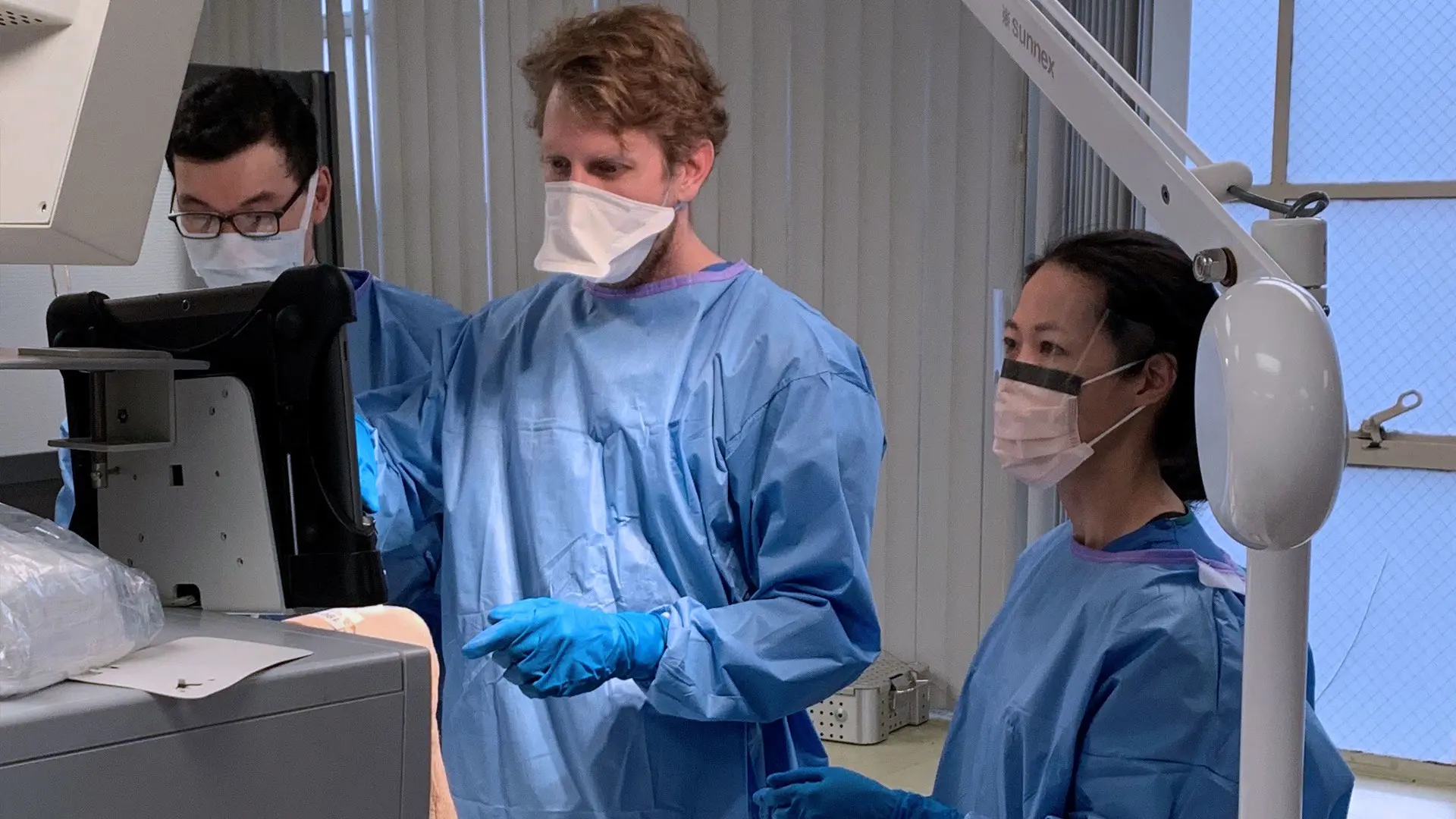
“Although we are a medium-sized residency, we run like a very small program in terms of morale, tone, and the camaraderie among residents and faculty,” says Bradford O. Parsons, MD, Professor of Orthopedic Surgery, and Director of the Orthopedic Surgery Residency Program at Icahn Mount Sinai. “Early on, residents are exposed to various subspecialties within and inner components of the field. This enables them to get an initial sense of what they may want to pursue during a fellowship.”
This awareness is beneficial as graduates are routinely placed at the most competitive subspecialty fellowship positions in the country.
A Comprehensive Education Reinforced by Seasoned Mentors
“In addition to receiving a well-versed and well-rounded education, residents are able to participate in high-level basic science, biomechanics, and clinical research across multiple formats,” says Paul J. Cagle Jr., MD, Associate Professor of Orthopedic Surgery, and Associate Program Director of the Orthopedic Surgery Residency Program. “We have an incredibly highly ranked National Institutes of Health-funded group within Icahn Mount Sinai, of note is the Spine Bioengineering Lab led by James Iatridis, PhD. Our residents have many opportunities to work with innovative scientists like Dr. Iatridis.”
Says Dr. Parsons, “Trainees are quite productive in both conducting research and exploring innovation. We have residents who graduate with multiple publications and scientific endeavors.”
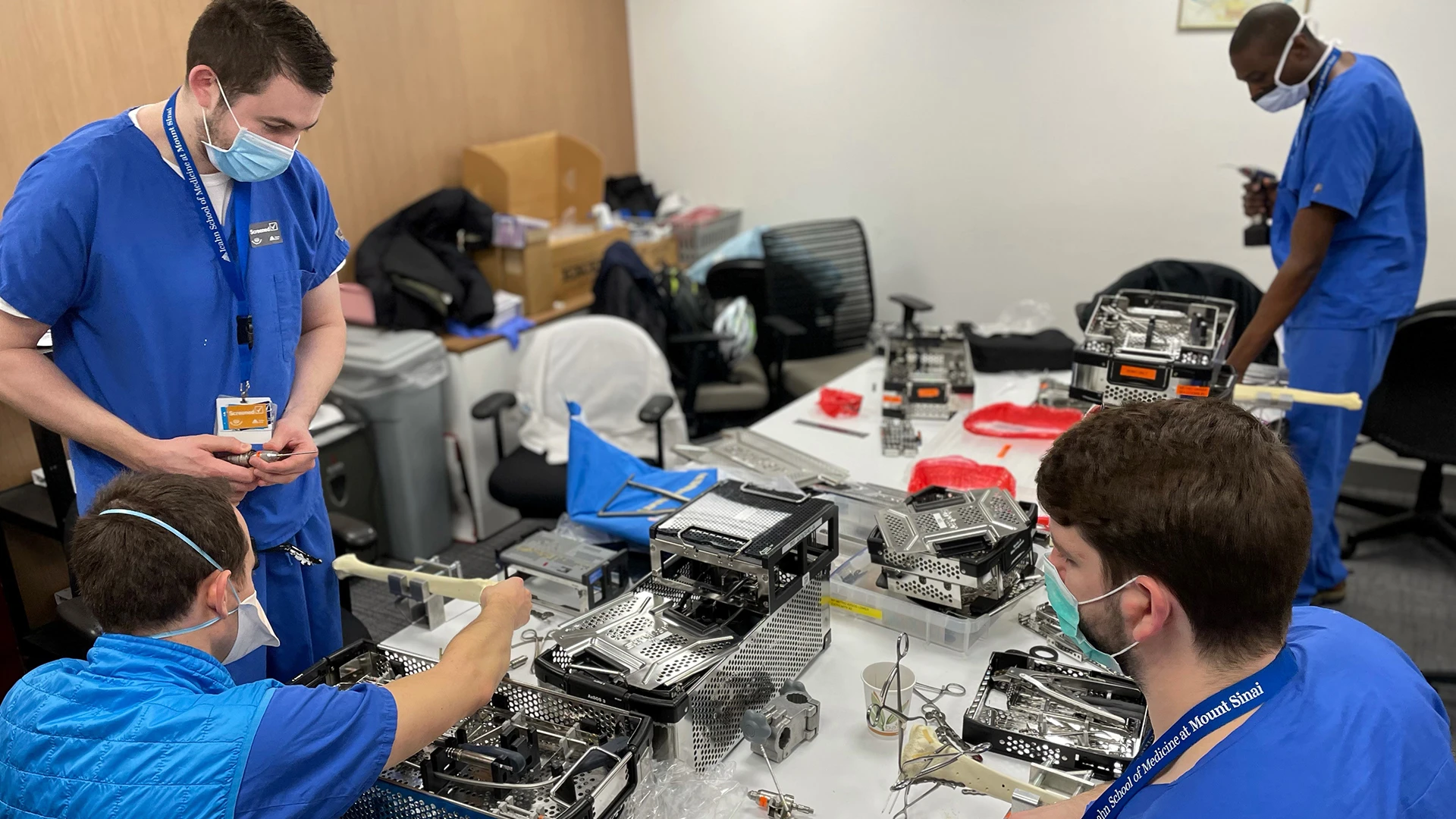
Residents at a Sawbones session for tibial plateau fracture fixation
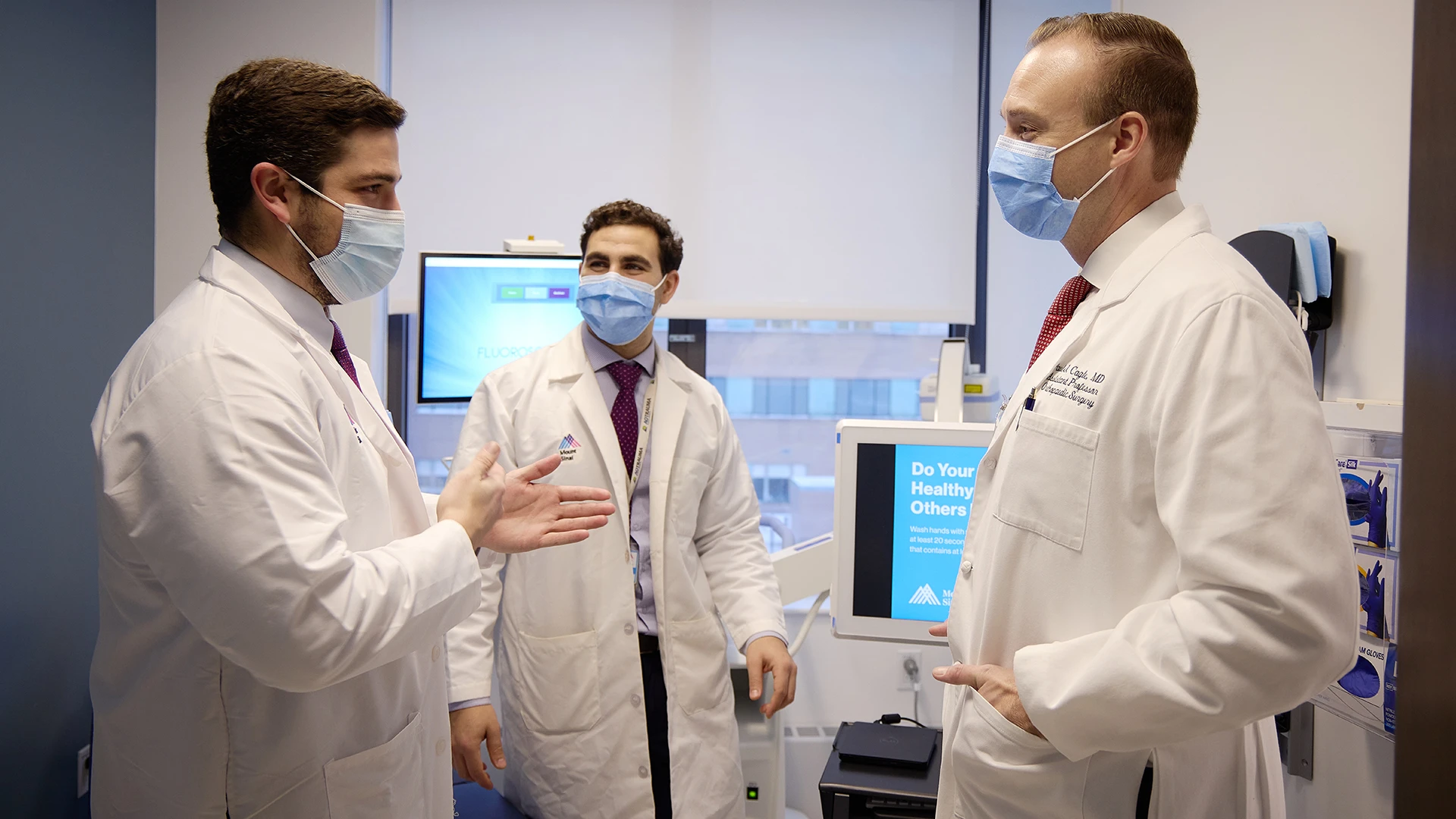
Dr. Cagle and two residents at the newly launched C.V. Starr Hand Center
The program’s highly motivated residents have no problem engaging with faculty in pursuit of career or research goals. This is due—in part—to the culture of mentorship at Icahn Mount Sinai. The program itself has a formal mentorship in which each resident is matched with a faculty member who advises them through their course of study. But equally important is the informal mentorship available to residents.
“Residents often get mentorship daily through their frequent interaction with faculty,” says Dr. Parsons. “As an example, if a resident’s faculty mentor is a spine surgeon but the resident wants to do shoulder surgery, it’s quite easy for the resident to get direct mentorship from someone in that specialty.”
These professional relationships are often maintained well after residents have graduated.
Quality Education with Expanded Accessibility
Orthopedic Surgery residents are intimately involved with all facets of orthopedic care, including outpatient medicine, inpatient care, and surgery. The COVID-19 pandemic has not stymied this commitment.
“The program has done an excellent job of maintaining a high-quality education through different mechanisms,” says Dr. Parsons of the adjustments—like the use of virtual sessions—that were implemented to ensure the safety and well-being of faculty and students. “While some intimacy is lost as we no longer do everything in person, more virtual meetings and conferences allows for greater accessibility, as well as the ability to seamlessly engage with faculty across Mount Sinai’s multiple sites.”
Featured
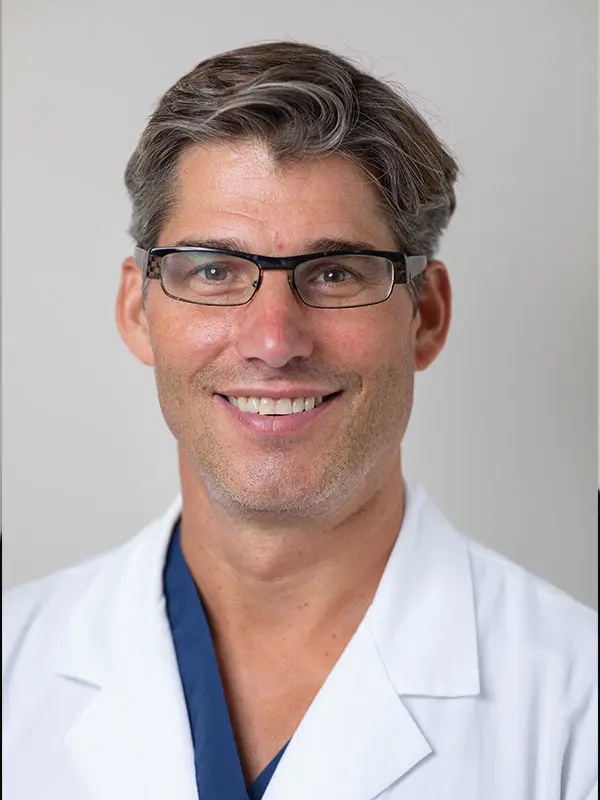
Bradford O. Parsons, MD
Professor of Orthopedic Surgery
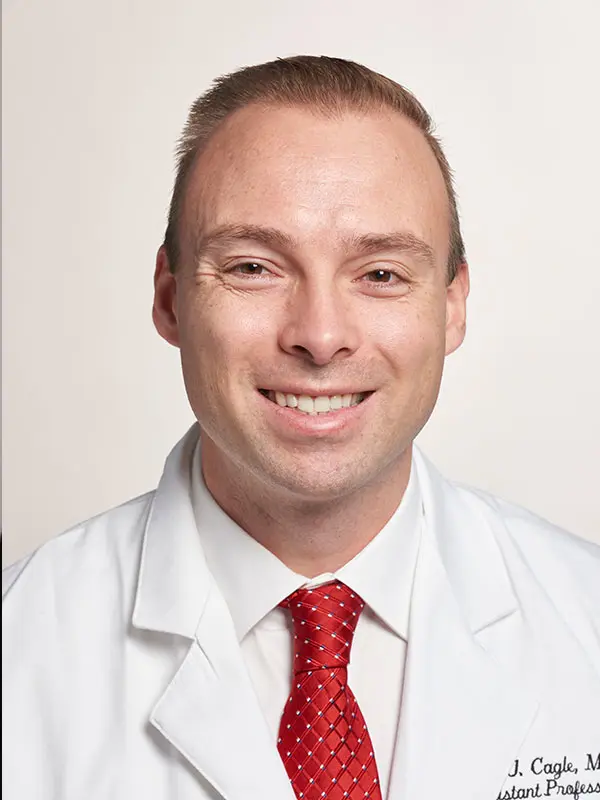
Paul J. Cagle, Jr., MD
Associate Professor of Orthopedic Surgery